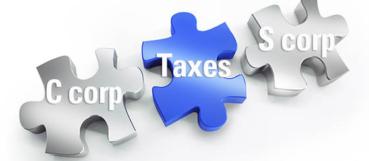TCJA changes to employee benefits tax breaks: 4 negatives and a positive

The Tax Cuts and Jobs Act (TCJA) includes many changes that affect tax breaks for employee benefits. Among the changes are four negatives and one positive that will impact not only employees but also the businesses providing the benefits.
4 breaks curtailed
Beginning with the 2018 tax year, the TCJA reduces or eliminates tax breaks in the following areas:
1. Transportation benefits. The TCJA eliminates business deductions for the cost of providing qualified employee transportation fringe benefits, such as parking allowances, mass transit passes and van pooling. (These benefits are still tax-free to recipient employees.) It also disallows business deductions for the cost of providing commuting transportation to an employee (such as hiring a car service), unless the transportation is necessary for the employee’s safety. And it suspends through 2025 the tax-free benefit of up to $20 a month for bicycle commuting.
2. On-premises meals. The TCJA reduces to 50% a business’s deduction for providing certain meals to employees on the business premises, such as when employees work late or if served in a company cafeteria. (The deduction is scheduled for elimination in 2025.) For employees, the value of these benefits continues to be tax-free.
3. Moving expense reimbursements. The TCJA suspends through 2025 the exclusion from employees’ taxable income of a business’s reimbursements of employees’ qualified moving expenses. However, businesses generally will still be able to deduct such reimbursements.
4. Achievement awards. The TCJA eliminates the business tax deduction and corresponding employee tax exclusion for employee achievement awards that are provided in the form of cash, gift coupons or certificates, vacations, meals, lodging, tickets to sporting or theater events, securities and “other similar items.” However, the tax breaks are still available for gift certificates that allow the recipient to select tangible property from a limited range of items preselected by the employer. The deduction/exclusion limits remain at up to $400 of the value of achievement awards for length of service or safety and $1,600 for awards under a written nondiscriminatory achievement plan.
1 new break
For 2018 and 2019, the TCJA creates a tax credit for wages paid to qualifying employees on family and medical leave. To qualify, a business must offer at least two weeks of annual paid family and medical leave, as described by the Family and Medical Leave Act (FMLA), to qualified employees. The paid leave must provide at least 50% of the employee’s wages. Leave required by state or local law or that was already part of the business’s employee benefits program generally doesn’t qualify.
The credit equals a minimum of 12.5% of the amount of wages paid during a leave period. The credit is increased gradually for payments above 50% of wages paid and tops out at 25%. No double-dipping: Employers can’t also deduct wages claimed for the credit.
More rules, limits and changes
Keep in mind that additional rules and limits apply to these breaks, and that the TCJA makes additional changes affecting employee benefits. Contact us for more details.
© 2018





